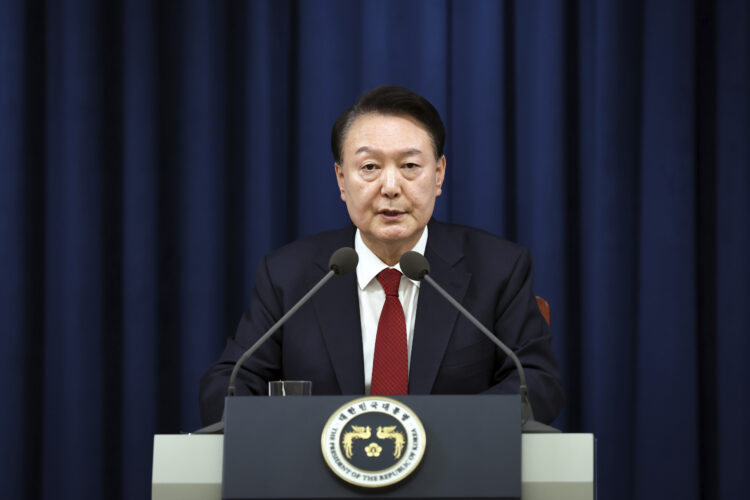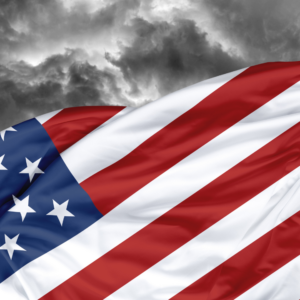South Korean President Yoon Suk Yeol declared emergency martial law on Tuesday for the first time since 1979, citing a need to protect the nation from“threats of North Korean communist forces” within the opposition Democratic Party, which he accuses of anti-state behavior. In response, South Korea’s parliament, which is controlled by the opposition, convened an emergency session and voted unanimously to revoke the martial law declaration, deeming it unconstitutional.
Yoon’s televised address characterized the Democratic Party’s actions as insurrectionary, undermining the constitutional order, and called their parliamentary control a “legislative dictatorship.”
“Dear citizens, I declare emergency martial law to defend the free Republic of Korea from the threats of North Korean communist forces and to eradicate the shameless pro-North Korean anti-state forces that are plundering the freedom and happiness of our people and to protect the free constitutional order,” he said.
South Korean President Yoon Suk Yeol declared martial law on Tuesday in an emergency national address as he accused the opposition of trying to paralyze the administration amid a deepening political rift https://t.co/pucghS8PDm pic.twitter.com/H2GxsRKYbG
— Bloomberg (@business) December 3, 2024
Learn more about the all-new VT News and subscribe today!
Yoon declared that the opposition party had crippled the government’s ability to legislate effectively by initiating 22 impeachment proceedings against various officials in the last six months, weakening national security.
“This is a situation that is not only unprecedented in any country in the world, but has never been seen since the founding of our country,” he said. “It is paralyzing the judiciary by intimidating judges and impeaching a number of prosecutors, and it is paralyzing the executive branch by trying to impeach the Minister of the Interior, the Chairman of the Communications Commission, the Chair of the Board of Audit, and the Defense Minister.”
The announcement triggered widespread backlash, including from within Yoon’s own conservative People Power Party, and raised concerns about the implications for democracy in South Korea. Protests erupted in Seoul, with demonstrators criticizing the government’s actions and calling for a return to democratic norms.
The United States expressed “grave concern over the escalating political tensions, with Deputy Secretary of State Kurt Campbell stressing the American expectation for a peaceful resolution in accordance with the rule of law. US officials, including President Biden, are being kept updated on the situation, and engagement with South Korean counterparts is ongoing.
Critics have likened Yoon’s actions to past authoritarian regimes and argued that there is no direct threat from North Korea to justify such a drastic measure. Amidst the chaos, the military is imposing restrictions on political and media activities, with the possibility of arrests without warrants for violators.
“All political activities, including those of the National Assembly, local councils, political parties, and political associations, as well as assemblies and demonstrations, are strictly prohibited,” said martial law commander Park An-su in a statement. “All media and publications shall be subject to the control of the Martial Law Command.”
In response, the National Assembly swiftly voted against the martial law declaration on Tuesday night, with 190 of its 300 members deeming it invalid. National Assembly Chairman Woo Won-sik called on Yoon to “immediately lift the emergency martial law” following the vote, but the military indicated it would maintain command until the president rescinded the martial law himself.
Yoon’s unpopularity has grown as he faces scrutiny over scandals involving his administration, leading to accusations that he is using martial law to suppress dissent.


















Add comment